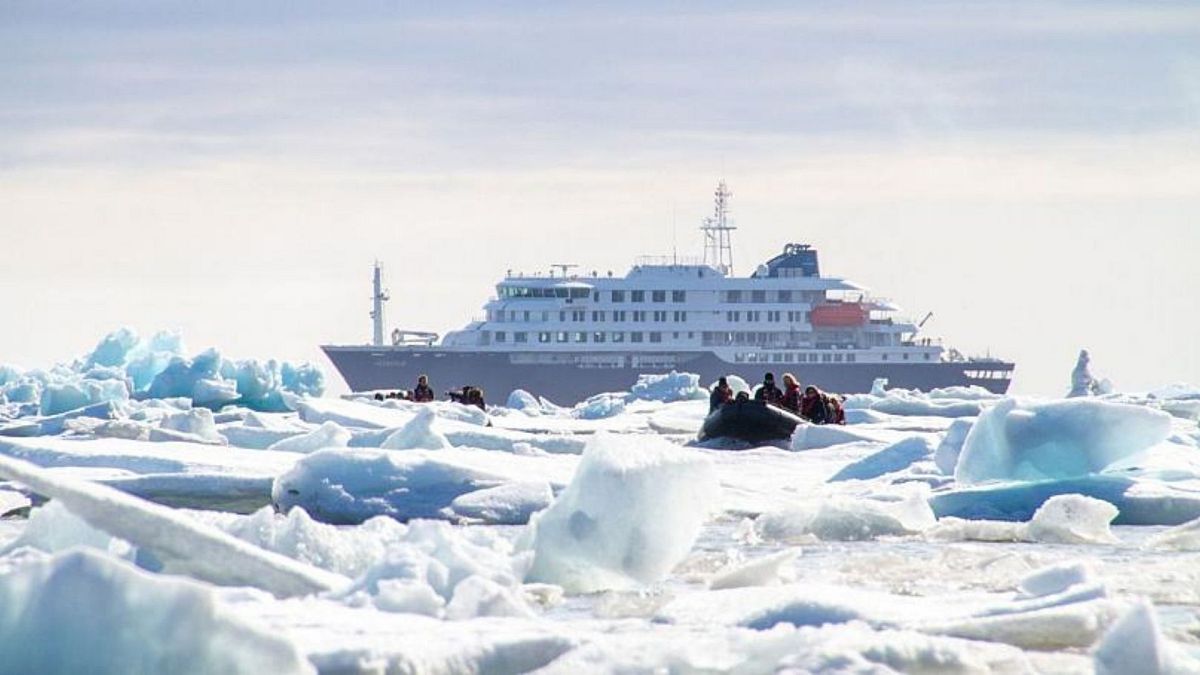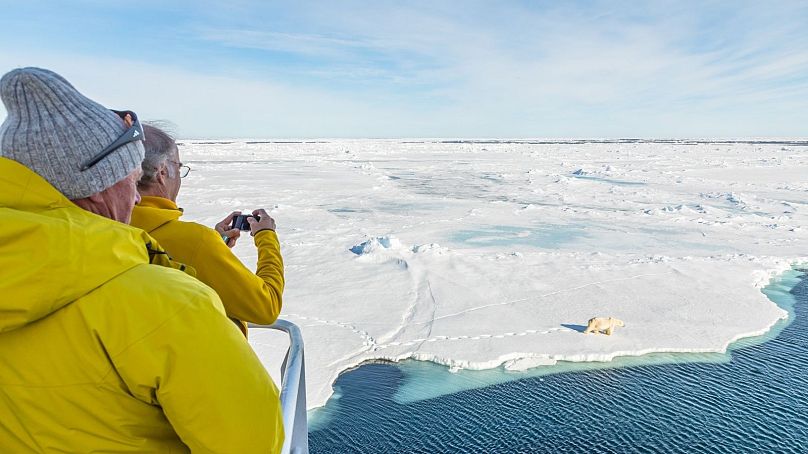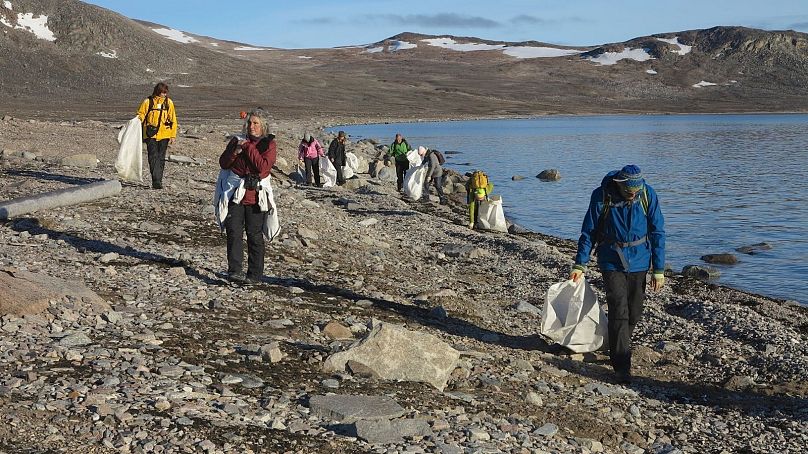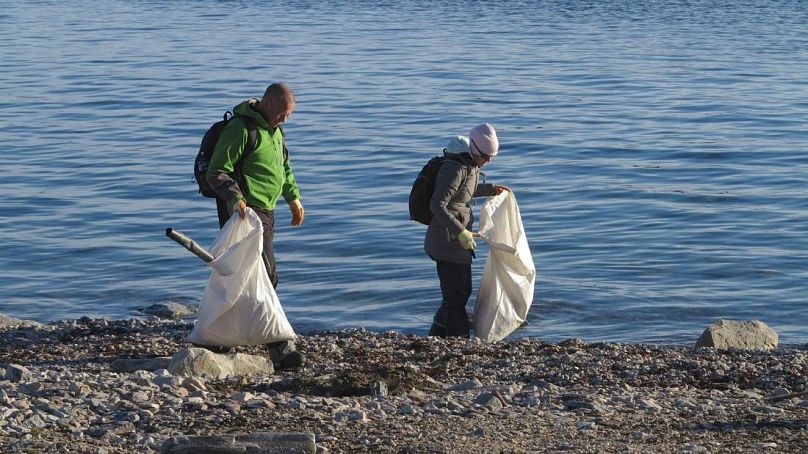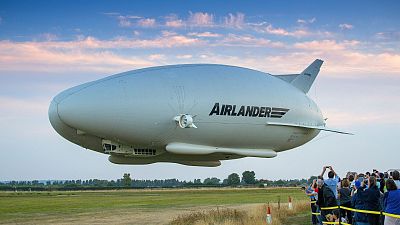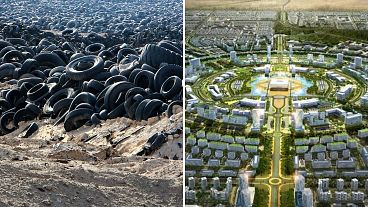Currents wash up plastic waste from fishing industries in the Northern hemisphere, endangering local wildlife in Svalbard.
Standing at the front of a ship roughly 80 degrees away from the North Pole, Franklin Braeckman watches a mother polar bear and her cub on an enormous sheet of pack ice.
“It’s a moment where you realise how small you are, how fragile it all is and how beautiful it all is. It’s mind-blowing, ” he says.
As the Marketing and Sales manager at Oceanwide Expeditions, Franklin is very familiar with these awe-inspiring sights. Taking thousands of passengers every year to experience them too, he never loses sight of what an incredible privilege this is.
“When you see huge icebergs or you see polar bears on the pack ice...it’s a moment where the passengers all keep quiet and all you hear is the click of a few lenses.”
Oceanwide Expeditions has been operating for 25 years, repurposing scientific research vessels to transport guests to far reaches of the Arctic and Antarctic.
It has an ethical approach to tourism, ensuring that its cruises never disturb local flora and fauna and keeping group sizes small to prevent overtourism.
But the company is doing more than just reducing its impact. Passengers on its expeditions around the Arctic Circle are helping to clean up the surroundings that provide them with this once in a lifetime experience.
Passengers cleaning up Svalbard beaches
Each year Oceanwide takes part in a collaborative initiative between the Svalbard governor and the Association of Arctic Expedition Cruise Operators (AECO).
It is a founding member of the scheme, where passengers get stuck in removing waste from the shores of the island.
“It’s concrete, you use your own hands to clean the beaches,” says Franklin.
Svalbard is located in a not-so-sweet spot where currents wash up plastic waste from fishing industries in the Northern hemisphere, endangering local wildlife. In August 2019 Oceanwide cleaned up 1000kg of plastic waste from a beach on the island and collectively tour operators make up roughly 20 per cent of the clean up operation.
The plastic waste is taken to Svalbard capital, Longyearbyen where it is analysed to provide data on ocean plastics.
AECO participates in the Arctic Circle operation as part of a wider UNEP scheme called Clean-up the Seas Campaign. Its aim is to tackle the 8 million metric tonnes of plastic pumped into the ocean each year.
But the Svalbard expedition is part of a wider culture of conscious travel, according to Franklin.
“Whatever we find when we go on land we bring it back with us,” he says.
“It’s like when you’re walking in the woods and you find a plastic bag. You can’t pretend you haven’t seen it and you have a choice: you leave it there or you just take it. It’s such a small thing.”
Education, conservation and change
The litter removal and low impact approach of Oceanwide takes place in a larger culture of education and awareness raising. The expeditions attract passengers with interests ranging from photography to conservation and ornithology.
“Most of them have been dreaming of these trips for years or saving for these trips because it’s still quite expensive,” says Franklin.
“The people on these ships are very passionate about these subjects.”
In 2019 ticket-holders came from 65 different nations and one 108-capacity vessel had 19 different nationalities on board.
“Which makes the conversation at the bar really really interesting,” laughs Franklin.
Alongside the boots-on-the-ground experience, the cruises also provide educational lectures on conservation issues. These often have a big impact on passengers’ perspectives when combined with the real life experiences that they have.
“It sounds like a cheesy marketing phrase but we bring back ambassadors, it’s true,” says Franklin.
The awareness raising missions that Oceanwide provides span both polar regions and include albatross conservation in South Georgia.
The company uses the latest green technology to make its vessels as environmentally friendly as possible. It takes steps such as desalinating seawater on its voyages to reduce waste and its newer models reduce fuel consumption by 35 per cent per passenger. Unfortunately, the polar conditions make full electrification impossible.
“You can’t live without having an impact but you can reduce the impact a lot,” says Franklin.
The rise of regenerative travel
This model of tourism is sorely needed, so that more people in the future can see the wonders of a polar bear cub on an ice sheet, but also in a wider sense.
Alongside this long-running expedition operator, a trend is now growing for regenerative, rather than merely sustainable, travel.
In 2020, six NGOs came together to form the Future of Tourism Coalition which set out 13 principles to paint a regenerative vision of the future for the tourism industry. These principles include improving the health of ecosystems and more equitable distribution of profits for locals.
Founder of Conscious Travel, Anna Pollock, has been researching the application of regenerative principles to the tourism sector for five years, and believes the time is ripe for a new framework.
“Conventional tourism extracts value, regenerative tourism is designed to generate more value than the old model,” she says.
“The old model is completely collapsing and sustainability isn’t enough. There’s no clarity as to what you’re sustaining, if it’s the old industrial model that’s not going to work.”
She adds that the IPCC report should signal an attitude change in the industry.
“We need to put our heads together and find a better way, if you don’t get that then open your eyes and get a sense of the bigger picture.
